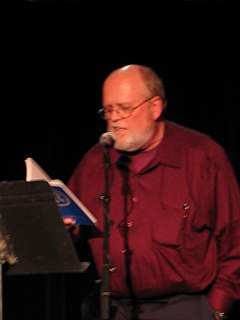A Quote by Eugene Ionesco
The poet cannot invent new words every time, of course. He uses the words of the tribe. But the handling of the word, the accent, a new articulation, renew them.
Related Quotes
As a poet and writer, I deeply love and I deeply hate words. I love the infinite evidence and change and requirements and possibilities of language; every human use of words that is joyful, or honest or new, because experience is new... But as a Black poet and writer, I hate words that cancel my name and my history and the freedom of my future: I hate the words that condemn and refuse the language of my people in America.
Sound words can't be understood through formal study of the language alone. They're felt when you immerse yourself in the culture or lifestyle that becomes a part of you. The Japanese language is abundant with onomatopoeia. Even though I've lived in Japan a long time, sound words are still an uncertain territory. And I think new words are being created every day. Even when I don't know a word I can sometimes connect it to a meaning using the sensations produced by the sounds, which feels like I'm playing with words.
I am a dreamer of words, of written words. I think I am reading; a word stops me. I leave the page. The syllables of the word begin to move around. Stressed accents begin to invert. The word abandons its meaning like an overload which is too heavy and prevents dreaming. Then words take on other meanings as if they had the right to be young. And the words wander away, looking in the nooks and crannies of vocabulary for new company, bad company.
A definition is nothing else but an explication of the meaning of a word, by words whose meaning is already known. Hence it is evident that every word cannot be defined; for the definition must consist of words; and there could be no definition, if there were not words previously understood without definition.
A new laboratory technique, positron emission tomography, uses radioactively labeled oxygen or glucose that essentially lights up specific and different areas of the brain being activated when a person speaks words or sees words or hears words, revealing the organic location for areas of behavioral malfunction.
I cannot imagine how any diplomat, or any dramatist, could improve on (Ronald Reagan's) words to Mikhail Gorbachev at the Geneva summit: 'Let me tell you why it is we distrust you.' Those words are candid and tough and they cannot have been easy to hear. But they are also a clear invitation to a new beginning and a new relationship that would be rooted in trust.
What's happening is the language. Not only in the usual sense of being interesting (which it is), but in the new sense that words are events, as real and important in themselves as wars and lovers... It is to the word, then, that the mind moves, and the word responds by taking on a physicality, even a sensuality, we have all been trained to ignore. Words have weight, and the distance between two can be a chasm filled with forces of association... What Clark is doing is genuinely new.
Human existence cannot be silent, nor can it be nourished by false words, but only by true words, with which people transform the world. To exist, humanly, is to name the world, to change it. Once named, the world in its turn reappears to the namers as a problem and requires of them a new naming. People are not built in silence, but in word, in work, in action-reflection.
A single word that can be offensive to someone is a horrible thing for anyone who has iman. In other words, filthy language out of your mouth and faith inside your heart cannot coexist. You cannot have iman in your heart and ugly words come out of your mouth. If you have no control over whatever four letter words you keep using every time you get frustrated, there's a spiritual problem, it's not just a habit problem.
How can you use a terrible word for anyone who has iman?
I often recall these words when I am writing, and I think to myself, “It’s true. There aren’t any new words. Our job is to give new meanings and special overtones to absolutely ordinary words.” I find the thought reassuring. It means that vast, unknown stretches still lie before us, fertile territories just waiting for us to cultivate them.
Scientists often invent words to fill the holes in their understanding.These words are meant as conveniences until real understanding can be found. ... Words such as dimension and field and infinity ... are not descriptions of reality, yet we accept them as such because everyone is sure someone else knows what the words mean.





































